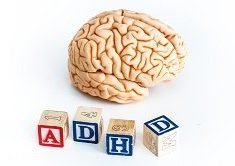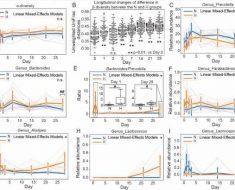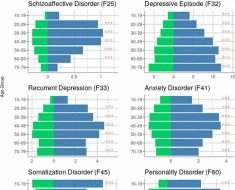People who have depression in early adulthood are 73% more likely to develop dementia later in life, study finds
- A new study recruited 15,000 volunteers between ages 20 and 89 and screened them for depression
- Researchers developed a statistical model to predict the average trajectory of depressive symptoms from young adulthood to older age
- Young adults with depression were 73% more likely to experience cognitive decline later in life
- Depression in early adulthood was also linked to lower cognition 10 years after symptoms began
People who have depression in early adulthood are at greater risk of developing dementia later in life, a new study finds.
Researchers from the University of California, San Francisco looked at more than 15,000 participants who were at different stages of life.
They found that those who experience depressive symptoms in their 20s were nearly 75 percent more likely to have full cognitive decline in old age.
‘Generally, we found that the greater the depressive symptoms, the lower the cognition and the faster the rates of decline,’ said first author Dr Willa Brenowitz, from the UCSF Department of Psychiatry and Behavioral Science, in a press release.
‘Older adults estimated to have moderate or high depressive symptoms in early adulthood were found to experience a drop in cognition over 10 years.’

A new study from the University of California, San Francisco found young adults with depression were 73% more likely to experience cognitive decline later in life (file image)
For the study, published on Wednesday in the Journal of Alzheimer’s Disease, the team recruited around 15,000 volunteers between ages 20 and 89.
The participants were split into three life stages -young adulthood (aged 20-49), midlife (aged 50-69) and older (aged 70-89) – and screened for depression.
Next, researchers developed a statistical model to predict the average trajectory of depressive symptoms
This trajectory helps the team make an estimate of the state of mental health of older adults with dementia when they were younger.
The model was then applied to 6,000 older participants in the study with a history of cognitive decline.
Lastly, the researchers controlled for other factors that could play a role including sex, race and history of smoking.
Results showed that young adults with depression were 73 percent more likely to experience cognitive decline later in life.
Additionally, this depression in early adulthood was linked to lower cognition 10 years after symptoms began.
There was also a risk of dementia in later for those who developed depression in middle-age or as older adults, but the risk was not as high at 43 percent.
The researches theorize that people with depression have a high number of stress hormones, which could damage the ability to form new memories.
‘Several mechanisms explain how depression might increase dementia risk,’ Brenowtiz said.
‘Among them is that hyperactivity of the central stress response system increases production of the stress hormones glucocorticoids, leading to damage of the hippocampus, the part of the brain essential for forming, organizing and storing new memories.
The researchers say that with 20 percent of all Americans suffering from depression, doctors should make sure to look for cognitive decline in their patients.
‘Future work will be needed to confirm these findings, but in the meantime, we should screen and treat depression for many reasons,’ said senior author Dr Kristine Yaffe, of the UCSF departments of Psychiatry and Behavioral Sciences, and Epidemiology and Biostatistics.
HOW TO DETECT ALZHEIMER’S
Alzheimer’s disease is a progressive brain disorder that slowly destroys memory, thinking skills and the ability to perform simple tasks.
It is the cause of 60 percent to 70 percent of cases of dementia.
The majority of people with Alzheimer’s are age 65 and older.
More than five million Americans have Alzheimer’s.
It is unknown what causes Alzheimer’s. Those who have the APOE gene are more likely to develop late-onset Alzheimer’s.
Signs and symptoms:
- Difficulty remembering newly learned information
- Disorientation
- Mood and behavioral changes
- Suspicion about family, friends and professional caregivers
- More serious memory loss
- Difficulty with speaking, swallowing and walking
Stages of Alzheimer’s:
- Mild Alzheimer’s (early-stage) – A person may be able to function independently but is having memory lapses
- Moderate Alzheimer’s (middle-stage) – Typically the longest stage, the person may confuse words, get frustrated or angry, or have sudden behavioral changes
- Severe Alzheimer’s disease (late-stage) – In the final stage, individuals lose the ability to respond to their environment, carry on a conversation and, eventually, control movement
There is no known cure for Alzheimer’s, but experts suggest physical exercise, social interaction and adding brain boosting omega-3 fats to your diet to prevent or slowdown the onset of symptoms.
Source: Read Full Article





